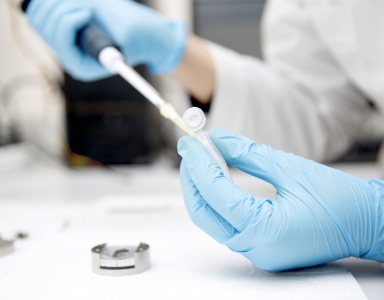University of Naples Federico II
LPS, good or bad?
Lipopolysaccharide (LPS) serves as an essential molecular player in the complex interplay between Gram-negative bacteria and their hosts. Traditionally, research has predominantly focused on LPS as a dangerous molecule capable of triggering robust innate immunity responses in hosts, often resulting in severe conditions such as sepsis in humans. However, recent insights have unveiled a contrasting narrative, revealing LPS’s presence on beneficial bacteria surfaces, suggesting potential advantageous interactions with hosts. Yet, our grasp of the molecular complexities underlying this phenomenon remains largely incomplete, hindering the exploration of LPS as a source for innovative therapeutic opportunities.
LPS-CODE
Enter Prof. Antonio Molinaro and his pioneering initiative, the LPS-CODE project, aimed to delve into the molecular complexities of LPS-host receptor interactions and the enigmatic LPS microdomains dictating the difference between beneficial and detrimental outcomes. This high-risk, high-gain research holds promise for transformative impacts for both science and society. Unravelling the chemical nuances distinguishing LPS variants associated with beneficial versus harmful bacteria promises to unlock a pile of therapeutic possibilities. Armed with this knowledge, we may be able to engineer precision therapies targeting pathogenic bacteria while preserving symbiotic microbial communities. Moreover, this research holds the potential to birth novel antimicrobial strategies tailored to combat previously unbeatable challenges, including antibiotic-resistant strains.
Funding support
To get this groundbreaking research off the ground, Prof. Molinaro applied for an ERC Advanced Grant, and we at Hezelburcht were there to lend our expertise, reviewing and refining his grant application and providing interview training. This collaborative effort underscores our commitment to empowering researchers in their quest to translate groundbreaking ideas into impactful realities.
My collaboration with Hezelburcht has been very positive and constructive from many points of view. The interaction has been not only related to the formal aspects of the proposals and its presentation but encompassed a very good scientific discussion aimed at clarifying ideas and improving the way to bid the science within the scientific proposal. Excellent collaborative help! - prof. Antonio Molinaro


